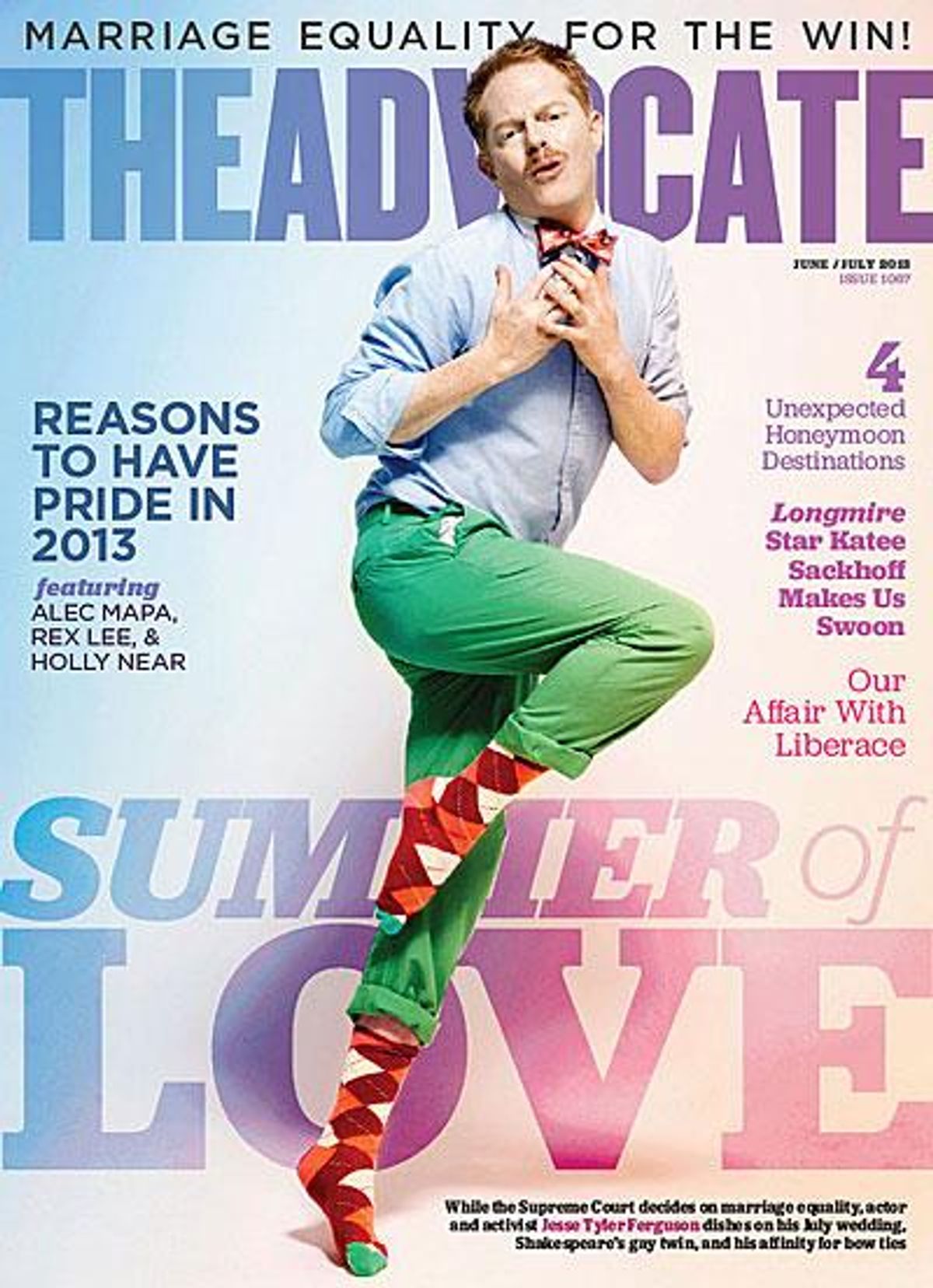There's a moment in our work, one that happens periodically, when we're reporting a new story, and it stops us short with a sudden thought, This could happen to me. I know I'm not the only one that this happens to. For many of us in the LGBT media, it's why we do our work; we're invested in the matters we report on. The news that a Missouri man was violently arrested at Research Medical Center in Kansas City for refusing to leave his partner's hospital bedside was one such moment for me.
Roger Gorley and his partner Allen Mansell have been in a civil partnership for five years, and have mutual power of attorney. Those are legal distinctions that separate them from the status of roommates, or friends, or lovers. Despite his legal right to stay with his partner, some poor excuse for a health care worker refused to look up their power of attorney status and and ordered security to throw Roger out at Allen's brother's request. Power of attorney is one of the many legal arrangments that same-sex couples are obliged to create at no small expense when they cannot marry in their state, or when a legal marriage is not recognized in their state. Missouri has a constitutional ban on same-sex marriage.
But that power of attorney had been previously registered with the hospital, and could have been looked up at any computer terminal in the hospital.
Let this be a reminder to all of us who wonder whether it's just that tricky little "marriage" word that separates us from the full rights afforded to other taxpaying citizens. It ain't.
Were Allen straight, would that nurse have asked his wife for proof of her legal status in determining care for her husband? If same-sex marriage were legal across the country, would the police have assumed that Roger had no legal right to be there? Would he have been handcuffed and fined $600? Certainly not.
I was stopped short reading Allen and Roger's story because I haven't gotten up the courage yet to ask an immigration attorney what's going to happen to me and my partner. As much as we report on these issues I admit I'm not caught up handling such matters in my own life.
My partner is a foreign national. He's here legally, but currently we are not confident that he can remain indefinitely. And though LGBT people in same-sex family relationships in this country are "deprioritized" for deportation, we're still utterly dependent on those who must interpret such guidelines from U.S. Immigration and Customs Enforcement. I worry about this as we leave the country for visits to see his family and friends.
He's as healthy as an ox (a really healthy one) and he is annoyingly constitutionally resilient. But if he had an accident that put him in the hospital, would I be turned away from his bedside? What if we were in Missouri and far from our own doctors? His family is a good bunch, but they're far away. What if some nurse or doctor or hospital security guard with an axe to grind decided that we weren't his or her idea of a proper couple? He'd be alone -- as would I if the situation were reversed.
I know immigration and health are distinct issues, but they're related to the government's interest in defining our relationships in a dizzying patchwork of laws, some federal, some state, some municipal -- but all insufficient. There are real-life consequences related to the kind of second-class citizenship designed to keep us complacent but without full equality.
Best wishes to Roger and Allen.












































































